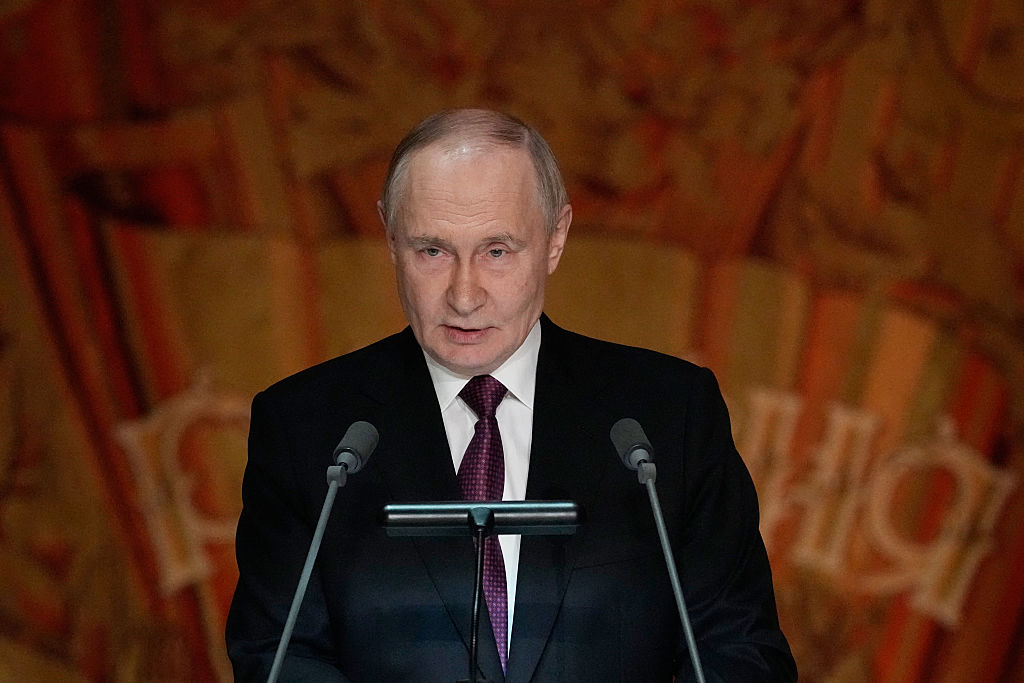Another week, another migration scandal. On Monday, the Times reported that Russian spies have been working with international human rights groups to ‘flood Europe with illegal migrants’. The revelations come from Daniel Mitov, Bulgaria’s interior minister, who claims to have evidence that the Russians are assisting people smugglers in finding weak spots along the Bulgaria-Turkey border and instructing migrants on how to avoid detection.
Mitov – as I’m sure you’ll understand – isn’t thrilled by this. Rather than regarding waves of new arrivals pouring through his country’s borders as just the injection of diversity that Bulgaria needs, the interior minister sees it as a naked attempt by Vladimir Putin to wreak havoc in an otherwise peaceful EU member state.
You can see Putin’s reasoning. By undermining the integrity of the EU’s constituent nations, he lends credence to his regime’s propaganda machine – which portrays the bloc as decadent, bourgeois and an enemy of the religiosity, cultural homogeneity and traditionalism that Putin claims defines Russia.
From our perspective, however, Russia absolutely cannot be allowed to disrupt Europe’s peace by fuelling the continent’s migrant crisis. Yvette Cooper, commenting on Mitov’s allegations, stressed her commitment to aiding ‘Bulgaria and our other Nato allies in securing Europe’s external frontiers and tackling every different type of threat we face from the Putin regime’. This week, Keir Starmer will host a summit of European nations – including Bulgaria – to discuss the threat of illegal migration and how they can cooperate more effectively to tackle it.
About time. Because this isn’t the only recent example of Russian interference in the affairs of western Europe. In 2023, some 250 Stars of David were mysteriously stencilled on the walls of Parisian buildings. Panic ensued among French politicians, who saw it as a Nazi-style attempt to ‘out’ Jews by identifying where they lived. It is now understood that this was in fact a Russian dezinformatsiya campaign, waged to inflame cultural tensions between France’s Jewish and Muslim populations.
It isn’t just Russia doing this, either. After Israel’s airstrikes on Tehran caused a major internet blackout across Iran over the summer, a number of pro-Scottish independence accounts went dark on X. This isn’t because disgruntled Scottish nationalists are emigrating to another one-party state with better weather: for years, the theocracy has engaged in an online campaign to foster the break-up of the United Kingdom. American researchers last year identified a network of more than 80 pro-independence X accounts linked to Iran that had posted more than 250,000 messages since late 2021.
This kind of espionage is corrosive, and while I don’t doubt Cooper or Starmer’s sincerity when they talk about cracking down on the latest Russian encroachment into Europe’s affairs, they are patently unprepared for the task.
First, when it comes to countering espionage, the government has hardly shown its resolve. The China ‘spygate’ scandal is a case in point. This is not an administration that has the capacity nor competence to robustly protect British interests. Due in large part to its refusal to describe an overtly hostile state as our ‘enemy’, it has allowed the trial to collapse, and is now having to bat off speculation that it did so to maintain cordial relations with one of the world’s most brutal dictatorships. If I were Bulgaria’s president, I’d exhaust every possible option before relying on Starmer to stand up to Putin.
But beyond the government’s sheer uselessness, the fundamental reason why it will be impotent in the face of Russia is because it is unwilling to divorce itself from the European human rights settlement that Putin is now weaponising. It is positive that Labour are – rhetorically at least – taking illegal immigration seriously, but this isn’t a substitute for making the hard choices that would actually make a difference.
To properly control our borders and deport people who have arrived in Britain illegally, we need to re-examine the role that foreign judges and external legal guidance play in our constitution. Starmer has acknowledged this, and in an interview with the BBC said that he wants to reassess Article 3 of the European Convention on Human Rights, which is frequently interpreted in a way that blocks deportations where returning the individual to their country of origin would jeopardise their safety. The Article might sound reasonable, but not when it is invoked to prevent the removal of Brazilian paedophiles on the grounds that they would be treated worse in a South American prison than they would in a British one.
Still, while this is a welcome acknowledgement from the Prime Minister, it falls far short of what is necessary. In that same interview, Starmer insisted that he did not want to ‘tear down’ human rights legislation. But what if that is what we need? Research by Lord Lilley, published by the Centre for Policy Studies, argues that we almost certainly have to leave the ECHR entirely if we are to control our borders.
The revelations over Russia’s involvement in stoking Europe’s migrant crisis could be an opportunity for Starmer to finally show his mettle. But then again, potentially so was the proposed trial of Christopher Cash and Christopher Berry – the two parliamentary staffers accused of spying for China (which they have always denied). Regrettably, and terrifyingly for us poor sods who have to suffer the consequences, Putin’s migration manoeuvres will likely amount to yet another opportunity for this government to flaunt its impotence.






Comments